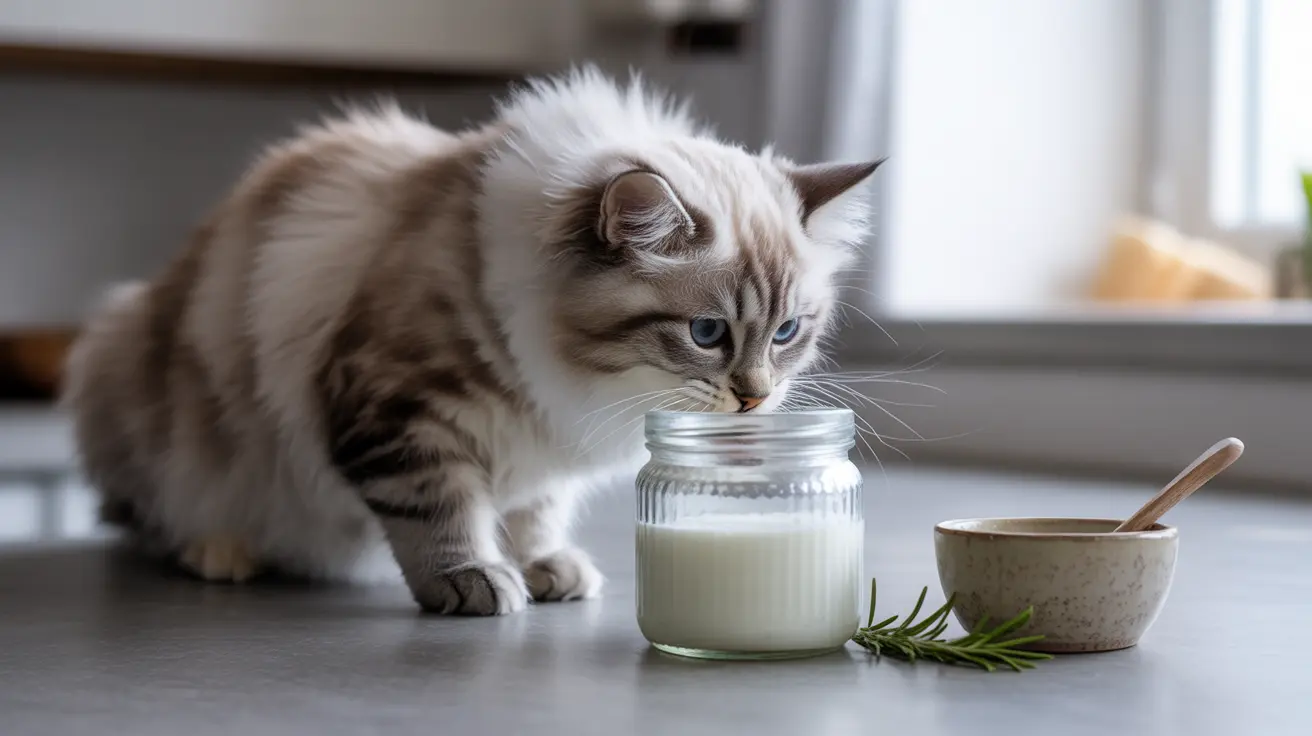As more pet owners explore natural remedies for their feline friends, questions about coconut oil's safety for cats have become increasingly common. This comprehensive guide will explore whether coconut oil is toxic to cats, its potential benefits, and important safety considerations every cat owner should know.
While coconut oil isn't toxic to cats, its use requires careful consideration and proper dosing. Understanding both the benefits and risks is crucial for making informed decisions about incorporating coconut oil into your cat's care routine.
Understanding Coconut Oil Safety for Cats
Coconut oil is not inherently toxic to cats, but this doesn't mean it's suitable for unrestricted use. Cats can safely consume small amounts of coconut oil, though their bodies process fats differently than humans do. As obligate carnivores, cats have evolved to primarily digest animal-based fats rather than plant-based oils.
The key to safe coconut oil use lies in moderation and proper administration. Even though it's non-toxic, excessive consumption can lead to various health issues that cat owners should be aware of.
Potential Benefits of Coconut Oil for Cats
When used appropriately, coconut oil may offer several benefits for cats:
- Skin and coat health improvement
- Potential immune system support
- Help with hairball management
- Possible anti-inflammatory properties
Some holistic veterinarians suggest that coconut oil's medium-chain triglycerides (MCTs) may provide additional health benefits, though more scientific research is needed to confirm these claims.
Risks and Side Effects to Consider
Despite its potential benefits, coconut oil comes with several risks that cat owners should carefully consider:
Digestive Issues
Cats may experience gastrointestinal upset, including:
- Diarrhea
- Vomiting
- Stomach discomfort
- Loose stools
Weight Management Concerns
Coconut oil is high in calories and saturated fats. Regular use without dietary adjustments could lead to:
- Unwanted weight gain
- Obesity-related health issues
- Increased risk of diabetes
Safe Administration Guidelines
If you're considering introducing coconut oil to your cat's routine, follow these safety guidelines:
Proper Dosing
- Start with minimal amounts (1/8 teaspoon or less)
- Monitor your cat's reaction closely
- Gradually increase if well-tolerated
- Never exceed recommended amounts
Quality Considerations
Choose high-quality, organic, virgin coconut oil without additives or artificial ingredients. Ensure the oil is stored properly to prevent rancidity.
Frequently Asked Questions
Is coconut oil safe for cats to eat, and what is the recommended dosage?
Yes, coconut oil is safe for cats in small amounts. Start with 1/8 teaspoon or less and observe your cat's reaction. Never exceed 1/4 to 1/2 teaspoon per day for adult cats.
What are the possible digestive side effects of giving coconut oil to my cat?
Common digestive side effects include diarrhea, vomiting, and stomach upset. These typically occur when too much oil is given or when it's introduced too quickly.
Can coconut oil help improve my cat's skin and coat health?
Yes, when used topically or in small oral doses, coconut oil may help improve skin condition and coat shine. It can help with dry, itchy skin and reduce dandruff.
Are there any risks of allergic reactions or pancreatitis associated with coconut oil in cats?
While rare, some cats may be allergic to coconut oil. There's also a risk of pancreatitis if large amounts are consumed. Always monitor your cat for adverse reactions.
Should I consult a veterinarian before adding coconut oil to my cat's diet or skincare routine?
Yes, always consult your veterinarian before introducing coconut oil to your cat's care routine. They can provide personalized advice based on your cat's specific health needs and conditions.
Conclusion
While coconut oil isn't toxic to cats, its use requires careful consideration and proper administration. Always start with small amounts, monitor your cat's reaction, and consult with your veterinarian before making it a regular part of your cat's care routine. Remember that what works for one cat may not work for another, so individual assessment is crucial for safety and effectiveness.






